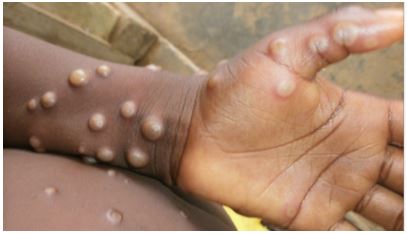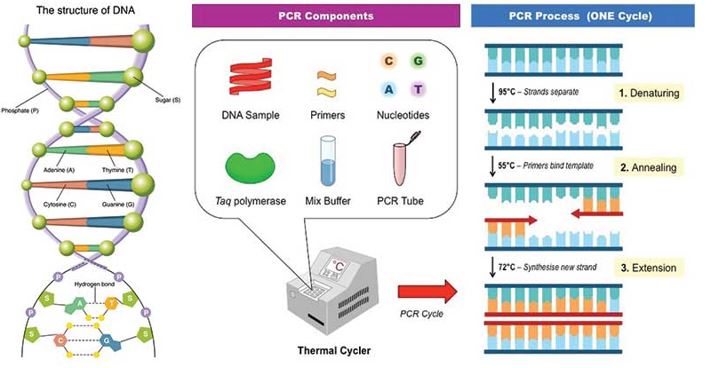

9th May 2022 (6 Topics)
Context
Health authorities in the United Kingdom recently have confirmed a case of monkeypox, a rare viral infection similar to smallpox, in an individual who recently travelled to that country from Nigeria.
About
Monkey Pox:
- Monkeypox virus is an orthopoxvirus that causes a disease with symptoms similar, but less severe, to smallpox.
- While smallpox was eradicated in 1980, monkeypox continues to occur in countries of Central and West Africa.
- Two distinct clade are identified: the West African clade and the Congo Basin clade, also known as the Central African clade.
- Monkeypox is a zoonosis- a disease that is transmitted from animals to humans.
- Cases are often found close to tropical rainforests where there are animals that carry the virus.
- Evidence of monkeypox virus infection has been found in animals including squirrels, Gambian poached rats, dormice, different species of monkeys and others.
- Detection of viral DNA by polymerase chain reaction (PCR) is the preferred laboratory test for monkeypox.
- The best diagnostic specimens are directly from the rash – skin, fluid or crusts, or biopsy where feasible.
- Antigen and antibody detection methods may not be useful as they do not distinguish between orthopoxviruses.
- Symptoms: Monkeypox presents with fever, an extensive characteristic rash and usually swollen lymph nodes.
- It is important to distinguish monkeypox from other illnesses such as chickenpox, measles, bacterial skin infections, scabies, syphilis and medication-associated allergies.
- According to the WHO, the proportion of patients who die has varied between 0 and 11% in documented cases, and has been higher among young children.
Outbreaks:
- Human monkeypox was first identified in humans in 1970 in the Democratic Republic of the Congo (then known as Zaire) in a 9-year-old boy in a region where smallpox had been eliminated in 1968.
- Since then, most cases have been reported from rural, rainforest regions of the Congo Basin, particularly in the Democratic Republic of the Congo, where it is considered to be endemic.
- According to the WHO, 15 countries on four continents have so far reported confirmed cases of monkeypox in humans.
- Locally acquired cases have been confirmed in the DRC (which has the largest incidence of the infection in the world), Central African Republic, Republic of the Congo, Gabon, Cameroon, Nigeria, Côte d’Ivoire, Liberia, and Sierra Leone.
- Imported cases have been found in South Sudan and Benin in Africa, and in the United States, UK, Israel, and Singapore.
|
PCR (Polymerase Chain Reaction):
|
More Articles




